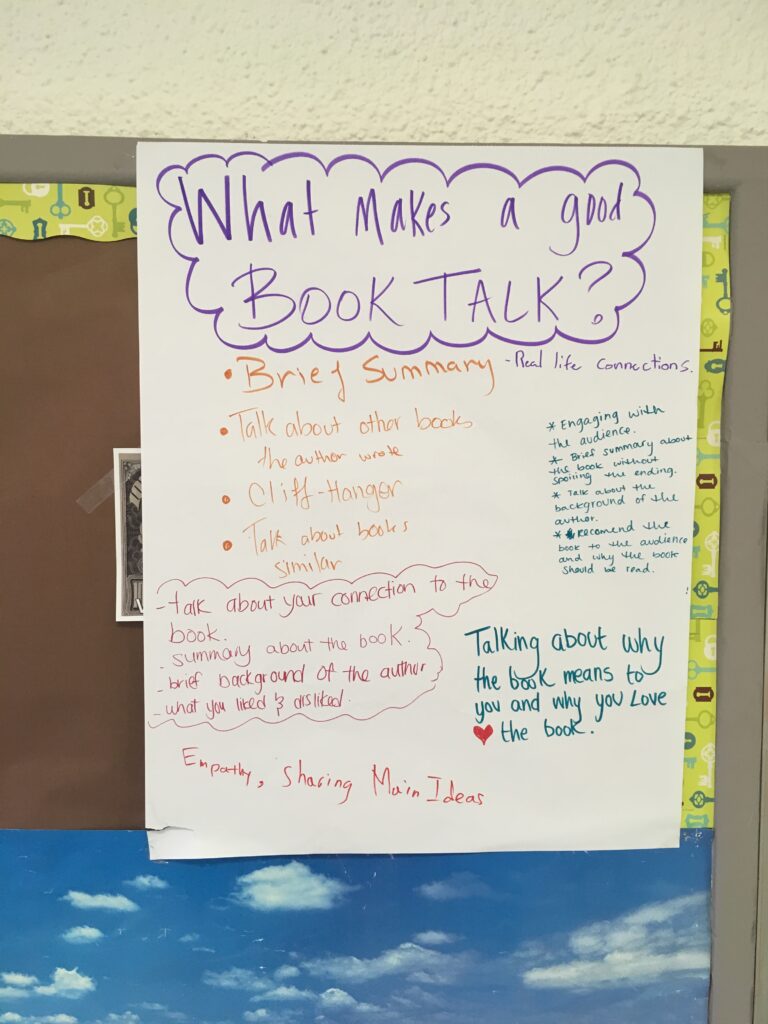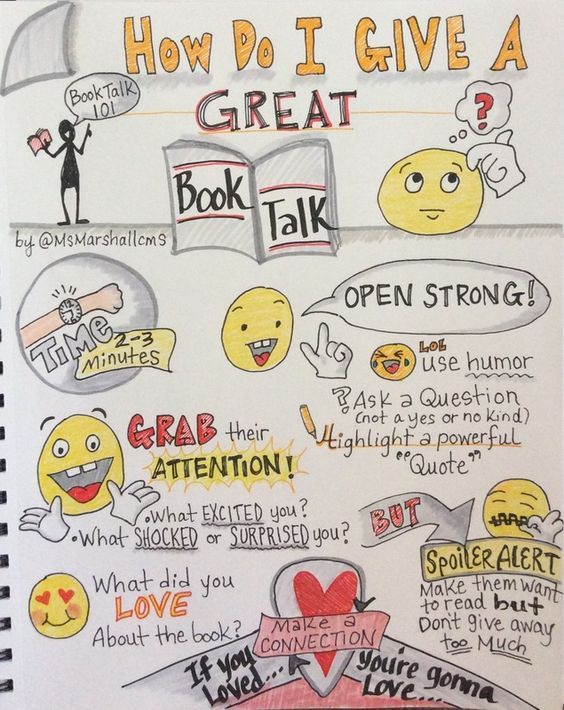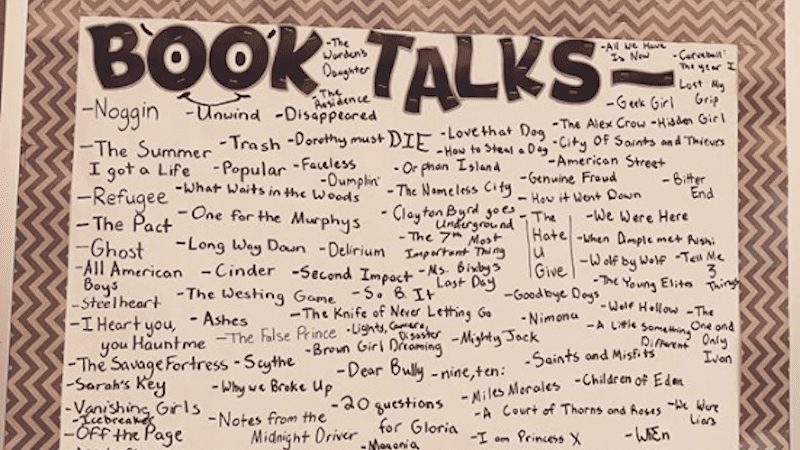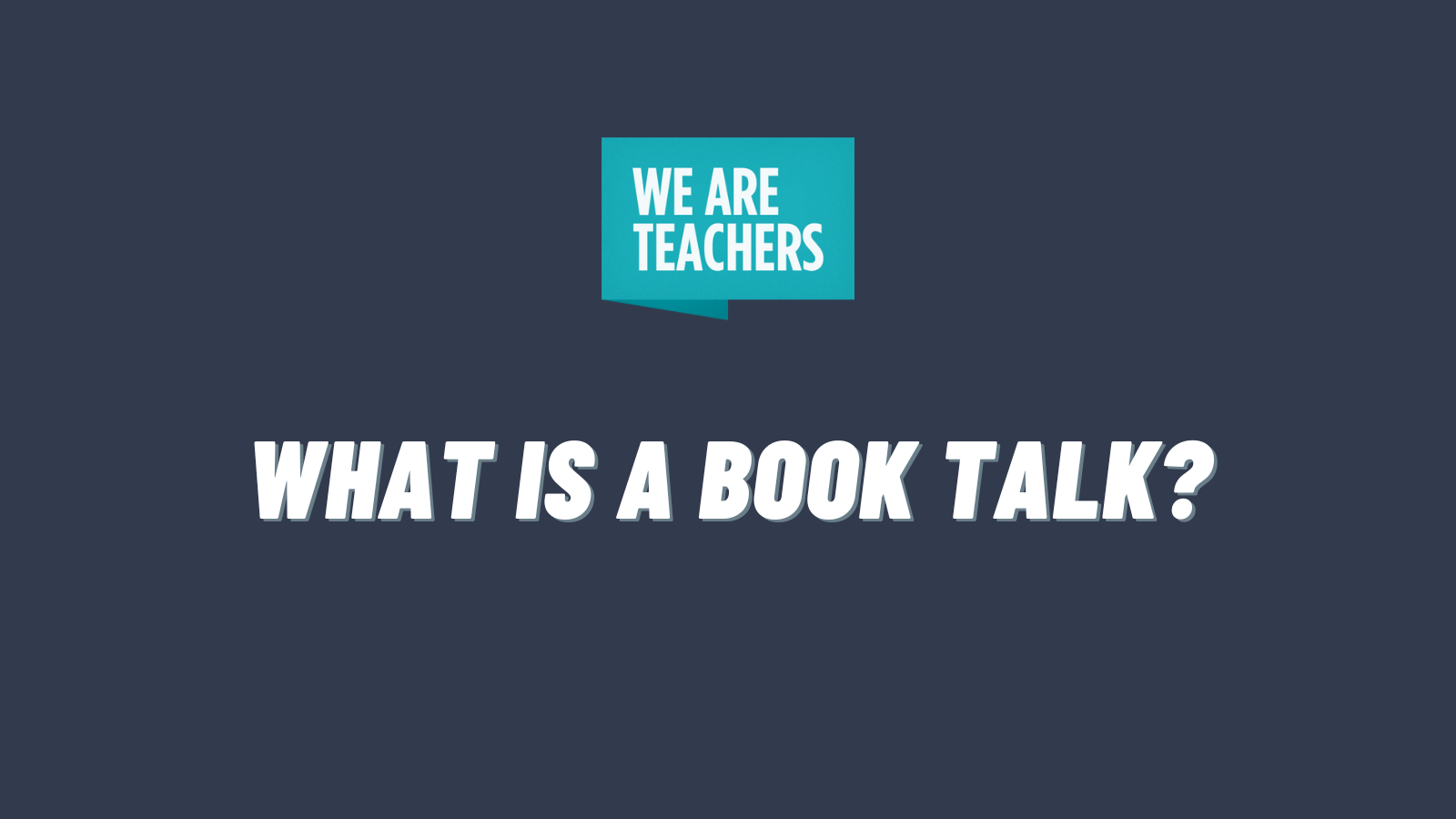You want students to read, but students aren’t interested in cracking a spine. The fix: book talks. A book talk is a sales pitch for a book. They sell students on a character, plot, or theme and encourage them to pick up a new title or check out a new author. Here’s everything you need to know about this fun strategy.
What is a book talk?
To recap: a book talk is a short presentation about a book that focuses on convincing others to read it. It’s not a formal book report or review. And, it’s more persuasive than expository—think sales and marketing. The goal is to engage potential readers and present a fun, exciting, and even suspenseful book commercial. Book talks can focus on one aspect of a book–character, plot, theme, etc. Whatever the reader really loved about the book and thinks will “sell” it to their audience.

Book Talk Examples
We love these examples of how book talks can be used by teachers, and for students from elementary school through high school. Literally everyone can use a book talk.
Mr. Rigney talks about Mary Shelley’s Frankenstein
Book talks for teens
Spotlight on Cinder
First-grade teacher talks about Elephant and Piggie
Book Talk Benefits
Yes, book talks are fun, but do they work? Short answer yes, and it’s not just about getting kids to open books.
- They get kids reading—really reading. To sell their book, students have to know the book and know it well. Their ad will fall flat if they haven’t read the book and can’t talk about it.
- They get kids sharing reading with others. Reading can be contagious, and book talks are a great way to spread a love of reading throughout your class, one book at a time.
- They teach note-taking. As students prepare for a book talk, taking notes and using those notes to summarize the story is an important skill they’ll develop.
- They build presentation skills. The process of reading the book, thinking through how to present it, and practicing are good rehearsal for later presentations.
- They build listening skills. When students aren’t presenting, they’re listening. The practice of participating in book talks, listening, and asking questions refines students’ listening skills.
How To Choose a Book
The best books for book talks are the ones you like! Help students find a book they want to talk about by:
- Providing a box of books that are recommended for their grade level, like this list for 4th grade.
- As you get to know students, slip them a note card with a personalized book recommendation. The personal touch will give them the confidence to know that they can read the book and that it’s a good choice.
- Provide books by theme, like Women’s History Month or books about dogs.
- Start with student interests with books written in first-person and characters that reflect real world experiences. When students connect with characters, they feel like they’re talking about a friend. Check out this list of diverse titles for ideas.

How to Plan a Book Talk
One: Get a book. Two: Sell it. Ok, students need more guidance than that. These nine tips will maximize the book talk format for you or your students:
1. Provide a template
Help students structure a book talk with a template that lets students know that they have all the components of a solid book talk.
2. Don’t give away the ending
Share the story until the climax or a cliff-hanger, and leave students wanting to know what happened next. The exception to this rule may be for a series or book of short stories where incorporating the ending to one story might excite readers about reading more from that author.
3. Jump into the action
Talk about why the book is amazing. Save the author and title til the end to keep the audience wondering, have I heard of this book?
4. Keep it short
Aim for between 30 seconds and five minutes, depending on your audience.
5. Let your personality shine
Bring your own personality, humor, and voice to the book talk and encourage students to do the same.
6. Prepare while you read
Take notes and place sticky notes at cliff-hangers, quotes, scenes that surprise you, and parts that you connect with.
7. Think about craft
What does the author do to keep you engaged? What will keep a student moving through the story? Are there aspects that the author has mastered, like figurative language or building suspense? Give examples of these to draw readers in.
8. Engage your audience
Ask questions, take a poll, have them guess what will happen next. The author kept you on the edge of your seat, get your students on the edge of theirs.
9. Practice, practice, practice!
The more students practice the better they’ll get. And, teacher bonus: Unlike your students, who take your class only once, you can perfect a book talk and give it year after year.

Level Up Book Talks
Already do book talks? Here are some ways to kick it up a notch:
- Challenge your students to give a book talk about a book they don’t like. Can they convince people that they actually liked the book? Or, can they convince people to read a book just to see how bad it really is?
- Book talk speed dating: Have students create a short book talk and then meet with their peers to try to sell their book in a speed dating format.
- Picture-book talks: Challenge older students to hone their presentation skills by having them give a book talk on a picture book.
- Peer review: Create a rubric or checklist (like this one) and have students give each other feedback.

